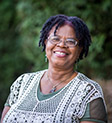
Maureen Williams, Sound Support Health Coaching
For Maureen Williams, a Trust participant who works at Fred Meyer in Covington, making a connection with a Sound Support Health Coach came at just the right time.
With an upcoming family reunion in Guyana – her first visit home in five years – having someone on her side has proven to be the boost she needed. But her first call with her coach didn’t start with a focus on her health.
“First, I wanted to talk about loneliness,” says Maureen. This normal feeling is something we all suffer from sometimes, especially when we’re far away from family and friends, and reaching out for support is so important.Maureen’s coach encouraged her to go out and do things and make plans with her local friends, especially during the darker months.
Maureen was encouraged by this experience, and started taking her coach’s advice with diet and exercise, too. She’s decided to replace her evening snack with a green juice, for example, and is getting more exercise.
“I’m not doing any weighing, but my clothes fit better,” she exclaims.
Now that the trip is coming soon, Maureen is excited to show family members her best, healthy self.
With
Sound Support Health Coaching from the Trust, you can set your own goals for improving your diet, getting more exercise, losing weight, reducing stress – whatever your health goal. It’s all about what’s most important to you. Are you ready to take the first step?

Jerry Guenther, LiveWell Health Coaching
For Trust participant Jerry Guenther, receiving positive reinforcement from a Sound Support Health Coach was the key to creating new healthy habits for retirement and beyond.
“I believe good information empowers people to make the best decisions,” says Jerry. For him,the information received during his Health Coaching calls reinforced recommendations given by his doctors about diet and other lifestyle choices, while also helping him become a more informed patient and advocate for himself and his family.
Sound Support Health Coaches are available to offer support and encouragement for a range of issues we all face in life, such as getting enough exercise, developing strategies around healthy eating and managing stress. Support is available to help you make big changes or just refine your habits. No need to find time in your busy schedule or try to schedule calls yourself. Health Coaches schedule calls at times that work for you, at a frequency that keeps you motivated.
“I never felt forgotten,” says Jerry. “I never had to pursue my coach and they were flexible. If they called at an inconvenient time for me we made arrangements for a more convenient time.
Today, Jerry is seeing the results of his work with his health coach. His family is now reading the labels on all food – which changed their purchases and diets. Reflecting on other takeaways from the program, Jerry says, “Education is empowering. Reminders are reinforcing, motivating and encouraging.”
What changes are you looking to make? Positive support works for people of all ages and can be a great way to build new habits. Sound Support Health Coaches are here to help you and your family transition to a new, healthy lifestyle.
Sound Support Health Coaching is completely confidential, open to all eligible participants and spouses, 18 years of age or older, and is provided by StayWell, an independent health management service provider. Visit www.soundhealthwellness.com to learn more and find out how to get started.

Peter Gemma, Sound Support Health Coaching
For many of us, the hard part about making a change is creating a new routine. For Trust participant Peter Gemma, 57, a health coach served as a guide for him to make lasting changes to his life.
Peter’s coach helped him recognize his personal challenges and put in place new ways of approaching them.
“What I realized is ‘I don’t feel like it’ isn’t a valid excuse,” he said.
For Peter, working with a health coach helped him add in more exercise and better food choices and encouraged him to go to routine medical appointments so he can stay on top of health concerns. His coach helped him stay focused on how to stay well, stop any health issues before they become problems, and adopt new, healthier habits.
Today, Peter says he notices right away if he loses focus, and has seen that variations in his routine can make staying on top of his diet and exercise plan a challenge.
“I just got back from a family wedding and I wasn’t perfect,” he laughs. “But I feel better if I stay on top of things. My advice to others: don’t ignore the signs that you need to make a change.”
If you want to make healthy changes to your routines, the Trust is here to help. Call (877) 362-9969 and select option 3 to find out more and sign up for Sound Support Health Coaching. You'll receive personalized telephone support and encouragement as you work toward your health goals.

Dale Johnson, Quit Tobacco Coaching
For Dale Johnson of Shoreline, the support of Quit Tobacco Coaching came after an event in his life encouraged him to make a change. Read on for his story.
For Dale Johnson of Shoreline, the support of Quit Tobacco Coaching came after a scary event in his life: in August of 2015, he had a heart attack and spent four days in the hospital. Johnson, a father of three, recently retired from Sugar Mountain Capital as a facility manager, where he worked for 13 years. Once he was home and healing, he signed up for Quit Tobacco Coaching through the Sound Health & Wellness Trust. “It was a wake-up call,” says Johnson.
Having the support of his coach, plus access to tobacco cessation medication, was crucial to Johnson’s success. His coach provided encouragement and tools to cope with cravings, but his family—including his wife, Mary, and sons Jonathan (22), Jason (13) and Joshua (12)—was his true inspiration. Spending less time smoking meant he could have more time with them, even just hanging out.
“I was always a bit of an embarrassed smoker,” says Johnson, explaining that he felt guilty when he had to get away to smoke during family get-togethers. “Now, the smell really gets to me,” says Johnson. “It’s so nice not to have to sneak away for a cigarette.”
Today, Johnson is back in the swing of things, but this time without tobacco. Food tastes better, his overall health is improving and Johnson is feeling the guilt lift. He now uses mints to help with his cravings, and has appreciated the support of his coach through it all.
“The positive thoughts and follow-up calls really helped me believe I could do it,” he says.
Are you ready to quit tobacco? Click here for more information. Make your tobacco use history, too.

Tilney Sutherland, Quit Tobacco Coaching
Tilney Sutherland has been a Sound Health & Wellness Trust plan participant for nearly 40 years. Three years ago she quit tobacco with the support of Christine, her Quit Tobacco Coaching program coach. Read her story.
How did you hear about the program?
I read about the different wellness programs in the newsletter. I’d been thinking about quitting smoking for quite awhile and Quit Tobacco Coaching sounded like an excellent idea.
What motivated you to quit tobacco?
There are a number of reasons but I remind myself daily of one of them, to help keep me off tobacco: I was at a routine doctor’s appointment a few years ago and since I was a smoker, my doctor asked if he could do a chest x-ray. When he showed me the image he pointed and said, ‘See that tiny spot right there? That’s the beginning of emphysema.’ At that moment I knew I had to quit. It was scary for me.
Also I was motivated by my grandkids. I want to be a good example for them. I would feel terrible sneaking out at night to have a cigarette after everyone went to bed. Those kinds of things don’t make you feel good about yourself.
What helped keep you motivated?
My coach Christine kept me motivated. I really appreciated how she talked to me. She was the best. I was surprised by how emotional the quitting process was for me. It was almost like I was letting go of an old friend. Christine really seemed to understand. For me, it was valuable to have someone to talk to about what was and wasn’t working. She kept me accountable but I never felt watched, graded or critiqued. I felt like I had someone who cared.
Christine had good tips and insight. For example, I talked with her about how my husband and I used to go out on the porch and have a cigarette together after dinner. It was a time for us to connect at the end of the day and I didn’t want to lose that if I quit smoking. She helped me realize that we could still do that, just for a different reason. For me, the substitute was a cup of tea. We still take those five to 10 minutes to sit down and talk to each other, just without the cigarettes.
What are your keys to success?
I look at the long term – where I want to see myself in 10 years and what my values look like in the future. I value my health and being able to get out and go – take a hike or whatever it may be – is a huge motivator. I don’t want to be held back by my body.
Like exercise, I need to be consistent. I’ve worked out for more than 30 years and had my on and off periods, but I realize I don’t like the feeling of having to start over. I just know if I’m consistent my body will respond. It’s the same with staying off tobacco.
Any advice for others considering Quit Tobacco Coaching?
I’d say that getting started is the hardest part, but that you have everything to gain and nothing to lose by trying.
Try it because it’s not invasive. That’s one thing people fear. They think there will be someone calling them all the time and that the program will be inconvenient. I found that it was totally supportive – even when my Coach couldn’t get a hold of me or if I needed more time between calls, they never made me feel bad. Once I made the decision to quit I wanted to get all the support I could.

Billy Osborn, Quit Tobacco Coaching
Billy Osborn knew that smoking was holding him back physically. When his Trust Wellness Coordinator mentioned Quit Tobacco Coaching to him, he knew this was his ticket to ride.
How did you hear about the program?
When a Trust Wellness Coordinator made a visit to my store I mentioned to her that I had been thinking about quitting smoking for a long time. She told me about the Quit Tobacco Coaching program and gave me a number to call to get enrolled. Later that week I talked to my Night Crew Manager who had just quit with Quit Tobacco Coaching and she encouraged me to call. I enrolled the next day.
What motivated you to enroll?
There were a lot of things in my life that made me want to quit tobacco, but there was one event that really changed my mind. Every day I would go to check my mail on the second floor of my apartment building. One night I realized how hard it was to breathe going up and down those stairs and how much my lungs hurt. I have been riding my bike everywhere since I was 4-years-old and I started to think how much longer and faster I could ride if I quit smoking. Everyone has one thing that sparks their motivation and for me it was something physical. I just wanted to be able to ride.
After I enrolled in the program, a buddy of mine offered to sell me his old 27-speed bike. My old bike was like riding with the brakes on and now I am riding around on the kind of bike they use in the Tour de France. When I get up to that 21st speed I can really feel a difference in my lungs and muscles. I normally ride 60 to 70 miles on my days off and I don’t think anything of it. This summer I am going to ride in the Seattle to Portland Bicycle Classic. There is a 5-mile hill in the ride and I know it will really test me. That climb will show me how far I’ve come since quitting smoking.
What keeps you motivated?
I talked to three or four different coaches during the program. It was great because I was able to talk with them at a time that fit my schedule. If my coach would call when I was busy, I could just call them back and talk to someone right away. The coaches were really compassionate and reminded me of a friend I could just sit down and talk to. They made me feel good about the accomplishments I made.
What are your keys to success?
During one of my first conversations with my coach, we set a quit date for September 1. I promised my coach that I would start as soon as I received my patches in the mail. A few days later, everything came to me including some material about getting started. I took the time to read through everything and got rid of my tobacco, lighters and ashtrays. The booklet also told me to wash my clothes three or four times to get rid of the cigarette smell. I will never forget the first time I smelled someone after quitting. If there were one reason I would never smoke again, it would be the smell. All of the extra little information about cravings and habits really helped me get through the hard times. I actually stopped smoking before my quit date.
Any advice for others considering Quit Tobacco Coaching?
You have to be ready to quit smoking and it’s something you have to put a lot of thought into. All of the pieces started falling into place for me when I thought about the cost and the physical benefit. When you finally get the willpower to quit, don’t hold back and start right away. Getting your mind in the game is the key to success. Every morning wake up and tell yourself, I am not going to smoke. For me, I went on a bike ride instead.

Shelia Garcia, Personal Health Assessment
Forty-nine year old Sheila Garcia decided to put aside her privacy worries, and took her Sound Support Personal Health Assessment for the first time. Not only were her privacy concerns put to rest, she learned more about her health, received her incentive—and won big.
Shelia Garcia, 49, a Physical Therapist Assistant at Jefferson Healthcare, admits she can be skeptical. For two years she doubted that her privacy would be protected if she took the Sound Support Personal Health Assessment questionnaire. However, in the spring of 2010, she decided to complete it anyway.
“For a long time I was skeptical about where the information goes,” Shelia said. “This year I decided it was time to see things in a positive light and consider how completing the questionnaire might give me some good suggestions for ways I can improve my health.”
The information participants share on their Sound Support Personal Health Assessment or Group Health’s Health Profile is completely confidential, protected by federal law, and cannot be shared with Sound Health Trustees, the union or the employer without permission.
“I found out about the assessment through the newsletter,” Shelia said. “I knew I could apply the $100 incentive towards my HRA so I was motivated by the financial gain as well.”
Shelia won big for her first year. Not only were her worries about privacy relieved, she learned more about her health status, deposited $100 into her Health Reimbursement Arrangement, and was one of three participants to win the Sound Health & Wellness Trust drawing for a Nintendo Wii™ with Wii Sports Active™.
“It’s always exciting to win something,” Shelia said. “I plan to use it during the winter on those cold, icky days when I can’t get outside to exercise. It will be a fun way to get my heart rate up.”
Shelia plans to take her Personal Health Assessment again in 2011. She can check her results each year to see how her health status has changed.
“I would tell others that they should take their Personal Health Assessment for three reasons,” Shelia said. “First, it’s easy to take and not time consuming. Second, it has the benefit of the financial increase into your HRA. Third, it’s a good way to get an overall health assessment. If you follow through, there are good guidelines on where to go from the questionnaire. It gives you an objective perspective on your health.”

Health Coaching a Helpful ‘Refresher’ for Trust Participant
For Michele Erdahl, a 56-year-old Trust Participant from Spokane, Sound Support Health Coaching has brought out her dancing feet.
“I have been walking more and using dancing as an exercise. My health coach is very supportive and when I mentioned I love to dance she encouraged me,” says Michele.
Michele first heard about Sound Support Health Coaching through information that came in the mail. She had worked with a Sound Support Health Coach years ago, but decided to sign up again. “I thought a refresher would be good,” she says.
What was your motivation to start using Health Coaching?
Since my first time working with a coach, I’ve been eating better but I wanted to also to stay motivated to get more exercise. My doctor told me my medication slows my metabolism, so losing weight just by watching what I eat, will not work for me. I have to get exercise too. I also want to be active enough to have fun with my 8-year-old grandson.
What helps keep you motivated?
My Health Coach never treats me like I am a failure; she encourages me and is a good source of information. Some of this information I know, but it’s good to get the confirmation that I’m on the right track.
What are your keys to success?
The more I do the better I feel, so the more I do. It is a winning circle.
Any advice for others considering Health Coaching?
I think it is worth the few minutes a month to have someone who is truly an outside party and is on your side. The support is invaluable.
What are you doing differently today?
I feel like I’m in better shape and feeling better is its own reward! I’m now doing fun runs with my friends at work and with the LiveWell Fit program. It passes by quickly when you are walking and chatting with a friend. I recently had my best time for a 5k of 58 minutes for the March of Dimes walk.

Joseph Carreriro, Quit Tobacco Coaching
Joseph Carreriro is a Head Clerk at Safeway and has been a Trust participant for eight years. He enrolled in the Trust’s Sound Support Quit Tobacco Coaching program to help kick his 20-year tobacco habit.
How did you hear about the program?
My wife told me about the program after she took the Personal Health Assessment last year.
What motivated you to enroll?
I felt that I needed support outside of the people I knew. My mom quit smoking after 30 years back in 1989 and tried to tell me what I needed to do, but what worked for her wasn’t working for me. I felt like I needed something more professional, more clinical in a way. I’ve learned via the program that no two people respond to the same quit methods.
What keeps you motivated?
I needed someone I can talk to, so for me the coaches themselves made a big difference. My wife would be there for me, but she had never had a single cigarette in her whole life. I might as well be talking about aliens with her because she didn’t know the pain I was going through. To me, the coaches felt like professional peers. It was almost like having a friend who is a doctor. They had the knowledge about all the statistics on why I should quit, yet they understood what I was going through and how difficult it is.
Talking to the coaches was like talking to a former smoker. They talked to you like they’ve also fallen and picked themselves back up and they know how humiliating it is. I looked at it like the coaches knew the types of temptations I faced, and yet they agreed that what I’m trying to do is major. It was like talking to a friend, but with no judgment. It’s not a small thing to be able to talk to someone who knows what you’re going through. I like the personal input you get from a coach.
What are your keys to success?
My coach told me that sometimes all you need to do is take a deep breath, realize what your goal is and calm down instead of reaching for a cigarette. My goal was to not be a slave to the cigarettes. There was something about the coaches sharing personal stories that made a big difference.
Any advice for others considering Quit Tobacco Coaching?
If you have Sound Health & Wellness Trust coverage, what can it hurt? The hardest part – trust a guy who has smoked for a long time – is the first step. The Trust is willing to take your hand and help you through that first step. It’s a good thing…no, it’s a great thing.

Kathy Naon, Quit Tobacco Coaching
Kathy Naon works at a QFC in Seattle and has been a Trust participant for nearly 30 years. Kathy joined the no-cost tobacco cessation program Sound Support Quit Tobacco Coaching in February of 2011, and hasn’t smoked since.
How did you hear about the program?
The Trust called me! I had tried to quit before but stopped when the medication became too expensive – even with insurance. When it was offered to me for free I thought ‘I’d be a fool to turn this down’.
What motivated you to enroll?
Several things, actually. I had been thinking about it because I’m a grandmother and I’m raising my oldest grandchild. I want to be around to see him as an adult. Also I didn’t enjoy smoking, or thinking of myself as having an addiction – but it was difficult to give up. I didn’t like that this chemical had the control and I didn’t. And the fact that it costs $10/pack was a good motivator too. I realized I would have to work at least 30 minutes to pay for one pack of cigarettes. I’ve certainly noticed the extra pocket money since quitting.
What keeps you motivated?
Well, primarily my faith. Before quitting I prayed and asked for help with this. A week later you called. I had asked that it would be easy and doable, and it was.
Beyond that, having access to personalized coaches and one-on-one phone sessions was very helpful. I had some disasters in the first few weeks that normally would have driven me to start smoking again. Instead I called my coach. I had more than one coach through the process and they all cared about how I was doing. They would ask: ‘on a scale from 1-10 how hard has it been for you this week?’ and then would give me the tools and support I needed to keep going.
One of the reasons I gave up before was the cost of the medication. But with Quit Tobacco Coaching you can qualify for free patches or gum, and that was really important because it allowed me to do it. If I had to go and pay for the items to quit it would be really expensive. Smokers aren’t thinking about the cost of cigarettes.
What are your keys to success?
I have a very close friend that is a blessing in my life. If I needed to, I’d call her and we’d chat and have a great old time. She is so encouraging and would help me through it.
I found that trying to keep a positive attitude is key. At work there were a few people who were trying to quit on their own, and they were struggling more than I was. You have to really want it. You have to believe in yourself. And you need to make sure you have support. I was just ready and everything I needed was there.
What is your favorite thing about participating in a Sound Support program?
I appreciate that there are people out there who have been educated and know what you are going through – they can give you educated answers to the questions you have. Also, I hate when people talk over me. I don’t like feeling stupid, so a lot of times I won’t repeat the questions I have. My coaches were down to earth and made me feel comfortable. I was able to say what I needed to say.
What is the best thing about meeting your goal?
I don’t miss that feeling of withdraw. It is a horrible feeling in your body. It is so nice now to not have that. I go all day at work and I don’t have that feeling. I see people smoking and go ‘eeww’.
Any advice for others trying to quit tobacco?
For me my faith was pivotal and I recommend praying and having the assurance that you will be supported. I felt like God gave me this body and He wants me to take care of it.
And use the Sound Support Wellness programs, they are there for you. I don’t know how much more motivation you really need! Get out there and do it. You’ll feel so much better about yourself. It’s an amazing hurdle to get over. It’s huge.

Steve Brennan, Quit Tobacco Coaching
Fifty-two year old Steve Brennan always knew he needed to quit smoking, but after seeing a friend have a stoke and watching the price of cigarettes jump again, he decided it was time to do something about it. He called Sound Support Quit Tobacco Coaching.
Steve Brennan, age 52, decided to free himself from cigarettes for his health and for his wallet. He joined the Sound Support Quit Tobacco Coaching program for help.
A smoker for 34 years, Steve realized his addiction needed to end. “I have known all these years how bad it is for you,” he said. “I decided I didn’t want to be a slave to cigarettes anymore.”
A friend at work had recently survived a stroke. Steve began to wonder what would happen to him if he didn’t quit smoking. After having a bad cold, he decided that it was time to quit for good.
“When you’re sick you’re so depleted of vitamins and nutrients,” he said. “I started coughing and reached for a cigarette. It was ridiculous, so I put it down and thought, ‘don’t even bother.’”
By the end of that day, Steve realized he hadn’t had a cigarette all day. “I thought, ‘I won’t have one now because it will make me want another one later.’”
The rising cost of cigarettes also influenced his decision to quit. “I called the Quit Tobacco Coaching program after the sales tax on cigarettes increased again.” By quitting smoking, he realized he’d save a lot of money, and he could even receive a monetary incentive for participating in the program. “One hundred dollars is a lot for making an attempt,” Steve said. “It’s a generous offer with the economy and medical costs the way they are today. I thought, ‘what do I have to lose?’”
Steve worked with several coaches through the program. “I’m glad it worked out that way because some of the coaches I worked with had been smokers before,” he said. “One of the guys I talked to told me that he quit so he knew exactly what I was going through.”
The program booklet was a useful resource for Steve. “The booklet was very helpful,” Steve said. “It helped me realize how nicotine affects your brain. Once I understood the addictive cycle I was ready to play the mind game, and win.”
Steve recommends the programs to others, noting that several people in his store have also quit tobacco with Quit Tobacco Coaching. “Call and get the booklet and do the program to free yourself from being a slave to cigarettes,” Steve recommends. “Like me and the others at my store who have quit, you can too.”

Sandra Borchgrevink, Quit Tobacco Coaching
Fifty-four year old Sandra Borchgrevink wasn’t looking forward to quitting, but when she saw how smoking was affecting her and her husband, she knew she had to find a way. With the help of Sound Support Quit Tobacco Coaching she is now tobacco free.
Sandra Borchgrevink didn’t really want to quit smoking, but when her husband’s health demanded that he quit, she knew she had to quit as well. Having smoked for 41 years, the 54-year-old Deli Clerk knew that both her husband and her pocketbook were counting on her.
“My husband was suffering from shortness of breath, and the cost of cigarettes went up last spring. I knew it was time for us both to quit,” Sandra said. “It’s too hard for one person to quit if there’s another smoker living in the house so I decided to quit as well.”
Sandra and her husband Robert joined the Sound Support Quit Tobacco Coaching smoking cessation program. “We both signed up in mid-March,” Sandra said. “We finished our cigarettes and started using the patches the next day.”
Through the Sound Support Quit Tobacco Coaching program, the Sound Health & Wellness Trust provides free patches, gum or medication to participants if recommended by their personal coach.
“It was nice when my coach called to check in,” Sandra said. “I appreciated the calls. Although I knew what I needed to do, the calls helped a lot.”
Sandra worked with several coaches for two months. The coaches provided support and helped her recognize her trigger points.
“The coaches were all really good,” Sandra said. “The biggest trigger point for me is still when I first get off work and get into my car. That’s when I want a cigarette the most.”
Instead of reaching for a cigarette, Sandra kept her hands busy with woodturning and sewing.
“I made my produce manager a wooden salad bowl,” Sandra said. “I knew I had to keep busy and not dwell on how much I wanted a cigarette.”
In addition to personalized coaching, the Trust offers participants a $100 incentive for completing five calls with a coach. “The check was nice, but it didn’t factor into my decision to quit,” Sandra said. “It all boils down to determination. You’ve got to want to do it.”
Due to Sandra and Robert’s determination, they have been smoke-free for six months. “If I can do it anyone can. I have no desire to go back,” Sandra said. “I still crave cigarettes now and then, but I know if I have one I’ll have to start all over again so I don’t.”
“I’ve told people at work they should call Quit Tobacco Coaching, because it works,” Sandra said. “You’ve got the coaching and you’ve got the patches, so what do you have to lose?”

Nicole Pena, Personal Health Assessment
Thirty-two year old Nicole Pena has taken her Group Health Health Profile every year for the last three years to track her health and get information on how to stay healthy. But this year she got even more.
Nicole Pena, age 32, has diligently completed her annual Personal Health Assessment for three years. As a Group Health Options participant, she takes Group Health’s Health Profile. Every year she appreciates the valuable health information she receives, but this year her dedication really paid off.
In addition to collecting her cash incentive for taking her PHA, this year she was one of the three lucky winners in the Trust’s drawing for a Wii console with Sport Active. Her sons were thrilled.
“I have two sons ages nine and six,” Nicole said. “They play flag football at the YMCA and they are crazy about the new Wii.”
Nicole enjoys reading and appreciates the health information and resources provided by the Sound Health & Wellness Trust. Each year when she receives the Sound Support postcard letting her know the PHA is available she makes sure to visit the Sound Health & Wellness website to complete her questionnaire and collect her incentive.
“It usually takes me around 20 minutes,” Nicole said. “I like learning about stress, sleep, and tips for quitting smoking.”
After taking her Health Profile in 2010, Nicole decided to quit smoking. She found a wealth of resources available through the Trust to help her quit.
Nicole said she plans to take her fourth Health Profile in 2011.
“I am very happy with the programs Sound Support offers,” Nicole said. “We’re lucky that our plan gives us all this great information.”
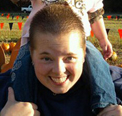
Shelby Vadney, Quit Tobacco Coaching
Twenty-six year old Shelby Vadney had smoked for seven years and thought she would never be able to quit. She was hesitant when a coworker gave her flyer on Sound Support Quit Tobacco Coaching, but figured she had to try.
Shelby Vadney, a Dairy Manager at QFC and smoker for the past seven years, never thought she would be able to quit. But after joining the Sound Support Quit Tobacco Coaching program, and after nearly nine months of being tobacco free, she’s proving herself wrong.
“I felt like I relied on cigarettes to get me through the day,” Shelby said. “I had tried everything by the time I joined the program and nothing had worked.”
At age 26, Shelby knew that she had a lot of reasons to quit, including her 16-month-old niece.
“I wanted to be the aunt who could play with her,” Shelby said. “I didn’t want to make her wait to ride down the slide at the playground while I smoked. I didn’t want to be a person who lights a cigarette in front of a baby.”
Shelby found out about the Sound Support Quit Tobacco Coaching program when one of her co-workers brought her a program flyer.
“She brought me the information and at first I wasn’t willing to try,” Shelby said. “I figured, it’s my life, I can quit my own way. Eventually I realized I wasn’t going to quit for anyone else. I had to do it for myself.”
On February 11, Shelby called the Quit Tobacco Coaching program to enroll. She had her last cigarette the same night.
“Initially I thought I would use the gum to help me quit,” Shelby said. “But then I realized I couldn’t set up a future date. I had to quit the day I decided to call the program. It would have irritated me to plan a quit date and count down my last cigarettes.”
Shelby began speaking with a coach every three weeks. She worked with two different coaches who counseled her on nicotine addition and offered suggestions for replacing the physical cravings.
“I loved having the coaches,” Shelby said. “It was a lot easier than doing it on my own. There was something about actually having someone calling and checking up on you that helped.”
Shelby talked with her quit coaches over the phone. “The coaches didn’t judge me,” Shelby said. “They were so nice and made it feel like we knew one another. They jumped right into my life and made me feel like they really understood what I was going through.”
Shelby knows that joining Quit Tobacco Coaching is one of the best things she could have done for herself. “You learn over time that quitting is the best selfish thing you could possibly do. I thank my co-worker every day for bringing me that flyer.”
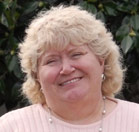
Anne-Marie Hastings, Health Coaching
Sixty-four year old Anne-Marie Hastings joined Sound Support Health Coaching to lose weight, improve her diet and get her diabetes under control. With the help of Sheila, her health coach, Anne-Marie is finding the support she needs to succeed.
64-year old Anne-Marie Hastings, a 15-year Sound Health and Wellness Trust participant, listens to her conscience. Fortunately for her, that conscience calls every three weeks.
Anne-Marie enrolled in Sound Support Health Coaching in 2009 after taking her Personal Health Assessment and not being pleased with what she saw. Now she has a personal health coach, Shelia, who calls to help keep her on track with her nutrition goals.
“I hear Sheila’s voice like my own conscience in the back of my head,” Anne-Marie said. “I really appreciate her moral support. When Shelia calls we discuss my weight loss goals and life in general. We talk about everything in my life that affects my health.”
Shelia encourages Anne-Marie, helping her make lasting changes to her diet and nutrition. “Right now I’m trying to get more veggies and protein in my meals,” Anne-Marie explained. “I’ve learned to like sweet potatoes and to use healthier options like PAM. She’s also teaching me and giving me resources on how to get more protein without adding fat.”
Anne-Marie has diabetes and she hopes by working on her eating habits she will be able to avoid using insulin in the future.
“I’m working to get my diabetes under control,” Anne-Marie said. “I’ve been eating better, reading labels, visiting calorieking.com and figuring out creative ways to add flavor with spices and herbs instead of salt.”
Anne-Marie realizes she is ultimately responsible for her own health, but she is thankful that Sound Support, and Sheila, are available for support and ideas.
“I know that I hold the key to turning my health around—with some help of course.” Anne-Marie said. “And as I’ve always said, it is easier to stay well than to have to get well once you’re sick.”

Jeni Meissner, Health Coaching
Sixty-year-old Jeni Meissner found out about health coaching after she completed her Personal Health Assessment. At the same time she met with her doctor and decided she needed to improve her health. Motivated by her doctor’s instructions and Sondra, her health coach, she signed up for Sound Support health coaching and is lowering her blood pressure and losing weight — the healthy way.
Jeni Meissner has been a Sound Health & Wellness Trust participant and childcare provider for more than 30 years. After talking with her doctor and completing her Personal Health Assessment she knew it was time to get serious about improving her health. A Sound Support health coach was waiting to help.
“I inherited some bad health genes from my parents but I have an awesome doctor,” Jeni described. “I’ve been battling high blood pressure for a long time and he always tells it like it is. So, when he told me in all honesty that I needed to make some lifestyle changes I took his instruction to heart.”
Jeni had recently completed her Sound Support Personal Health Assessment and had been referred to the health coaching program.
“I thought, ‘ok, I’ve been fooling around with eating right and exercise, but now it’s time to get serious,” Jeni remembered.
The time was right for her to call for a Sound Support health coach.
“When I first heard about health coaching I wondered how much it could help,” Jeni explained. “But I thought it was worth a try. After all, nothing ventured, nothing gained. My health coach is Sondra and she has been great.”
Jeni is working with Sondra to set and achieve healthy weight loss goals.
“Sondra’s really helped me by keeping me accountable,” Jeni explained. “I’m not like everyone else so it’s important to have someone who knows and understands my individual situation.”
Sondra offers Jeni tips and encouragement over the phone. They set up periodic appointments at Jeni’s request.
“She gives me pointers on how to keep going and not get discouraged,” Jeni said. “She keeps me motivated and answers my questions honestly. Now I have some history with her and I feel comfortable confiding in her.”
Jeni has six children and has run an in-home daycare center for infants to kindergarten age children for more than 30 years. Health coaching has improved the health of those around her as well.
“Our produce consumption has really improved,” Jeni said. “Nutrition is wearing off on my husband. Since I’m cooking it, he’s eating better.”
“Sound Support is for people who could benefit from individualized advice to help keep them on the right track,” Jeni explained. “When you look at Americans across the board a lot of people are struggling with weight and health issues as they get older. Sound Support is being offered to us as a tool. In my case I need all the help I can get.”
“It has worked for me, it might help others stay healthy and live longer.”

Earl Greenlaw, Personal Health Assessment
A Sound Health & Wellness Trust participant for 27 years, Earl Greenlaw was impressed with the programs available through Sound Support. Now he takes the information he learns through the Wellness Champion Volunteer Network to help others get healthy, stay informed and collect financial rewards.
For Earl Greenlaw, a Food Departments Pricing Coordinator at Fred Meyer and 27-year Sound Health & Wellness Trust participant, knowing what’s available on the Trust’s web site really pays off.
“After spending some time on the Sound Health web site I realized how much was available,” Earl said. “Now I’m cluing myself in and thinking of new ways to improve my health.”
Earl attended one of the Trust-sponsored focus groups at Local 367 last year, which is where he learned about the Sound Support Personal Health Assessment. His interest was piqued when he heard about the additional wellness programs available through Sound Support. He visited the Trust’s site to find out more.
“I took the PHA last year but I didn’t really understand what it was. I wasn’t familiar with the HRA either,” Earl explained. “I leaned a lot about these programs on the web site and after completing our assessments this year both my wife and I chose the $100 HRA contribution. We realize how far $200 goes towards covering out-of-pocket medical expenses.”
In addition to the financial incentive, Earl learned about other optional Sound Support programs referred by the Personal Health Assessment.
“The PHA gives you examples of what programs would be good for you like smoking cessation or weight loss programs that may apply to your life,” Earl explained. “It tunes you in to what is available.”
When Earl completed his PHA he was referred to the Sound Support health coaching program.
“I’m healthy, but the program came up and I thought that there might be an area I could improve on,” Earl said. “I worked with a stress health coach and after three calls received a $50 check. I never would have considered that unless it was suggested.”
Inspired by the opportunities available with Sound Support, Earl decided to become a Wellness Champion Volunteer. He works with the Trust to make sure that his fellow co-workers are aware of the variety of free and useful programs and makes sure they know they can come to him with any questions regarding Sound Support.
“I became a Wellness Champion Volunteer so that I could make others aware.” Earl said. “I speak with people and share what’s available. In April I’d like to put more flyers and information up at work so that people can see what the program does for them.”
Wellness Champion Volunteers help promote Sound Support programs through flyers and brochures provided by the Trust, wellness groups, and community races. The network spans Western Washington and helps reach participants by word-of-mouth.
“I want the other volunteers to know that even if they only get five more people to take the PHA this year than last year it’s still worth it,” Earl said. “Once people get on the web site and take their PHA they see what’s available.”
Earl has high hopes for the future of Sound Support.
“I hope that everyone has a healthy lifestyle. That’s what it’s all about. I hope that people will understand what’s out there. Maybe the Sound Support program will open people’s eyes to get more involved in the union and the Trust and what it does for you. You have to realize that your money is going to something important.”

Jeff Asher, Quit Tobacco Coaching
Fifty-eight year old Jeff Asher issued a challenge to his co-workers, “If you quit, I will.” After 40 years of being a smoker this was no small challenge. But with the encouragement and resources he received from his coaches and the support of his fellow quitters, Jeff was able to break the habit.
Jeff Asher, a Safeway Food Clerk, husband and father of four, has been a Sound Health & Wellness Trust participant for 29 years. Jeff was a smoker for over 40 years, but motivated by his coworkers, he called the Sound Support Quit Tobacco Coaching program.
Jeff decided to quit after he saw one of his co-workers successfully stop smoking. He decided to challenge one of his friends, a fellow lifetime smoker and co-worker, “If you quit I'll quit too.”
“At work there were three of us who quit,” Jeff explained. “We'd support one another by recognizing the progress we were making. We would tell one another, ‘way to go! You made it a day, a week, and so on.’”
In addition to the support of his coworkers, Jeff was encouraged by his Sound Support coach team. He would have regular telephone sessions with coaches who would help keep him on track.
“It was a deal I couldn't refuse,” Jeff explained. “Free patches, a $100 check, and it was nice to talk with someone who told you about the triggers caused by years of smoking.”
As it turns out, Jeff learned a lot from his personal coaches.
“I always thought it was the nicotine I wanted, but my coaches taught me that after a few days it wasn’t the nicotine I was craving, it was the smoking habits I had developed. They explained to me which cravings were needs and which cravings were desires.”
With the professional support of Sound Support Quit Tobacco Coaching and the personal support of his co-workers, Jeff decided he’d also use “monetary motivation” to keep him enthused.
“I was buying packs of cigarettes for $4.77,” Jeff said. “So every night I would get home and put $5 in a little box. I kept adding $5 for each day I didn’t smoke a cigarette. On my birthday, about eight months after I quit, I went out and spent $1,000.”
Jeff loves music. In the eight months following his January 31st quit date he was able to save the $1,000 needed to purchase a brand new guitar amplifier for his birthday. He continues to use this savings trick to motivate his smoke-free lifestyle today. In the last few months he has saved $600 simply by not smoking.
Jeff’s success has been inspirational not only for his fellow co-workers but at home. Inspired by her stepfather’s success, Jeff’s stepdaughter and her husband have also quit smoking in the past year.
“They knew how long I had smoked, and yet they saw me quit,” Jeff described. “They may have realized if I could quit they could do it too. They probably saw how much money I was saving each day.”
Jeff recommends Sound Support Quit Tobacco Coaching to other Sound Health & Wellness Trust participants and encourages them to give it a try.
“Call Quit Tobacco Coaching because it works! I thought it was going to be really hard to quit and I was amazed at how easy it was.” Jeff said. “Quitting wasn’t that bad at all because of the advice and information I received.”
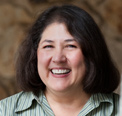
Lorraine Gorby, Personal Health Assessment
Fifty-three year old Lorraine Gorby took the personal health assessment to get the whole picture of her health. When she was invited to participate in health coaching calls to manage her stress, she welcomed the opportunity with great results.
Lorraine Gorby, 53, has been a member of the Sound Health & Wellness Trust for almost five years. When the Sound Support Wellness program offered a Personal Health Assessment she decided that the “quick and easy” questionnaire would give her a broad overview of her entire health picture.
A healthy person already, Gorby was able to see that there was room for improvement and she welcomed the opportunity to work with a stress management health coach when Sound Support called.
“My general health is good, but there are a couple areas where improvement is needed,” Gorby explained. “I believed the health coach would offer education, guidance and support.”
The two began speaking on the phone for 20 to 25 minutes at a time most convenient for Gorby.
“It is such a convenience to counsel over the phone. My calls were scheduled after work in the evening and I felt like my coach was genuinely interested in my stress concerns.”
Together, Gorby and her health coach discussed what triggers her stress and anxiety. The health coach offered insightful recommendations on actions she could take and helped her set personal goals for improvement.
“My health coach recommended ways I could deal with stress, because it’s unavoidable,” Gorby said. “My coach has also motivated me to engage in physical and social activities as well.”
Getting more involved has been a healthy lifestyle change for Gorby, who started walking the track at a local junior high school three times each week. By meeting a good friend at the track and joining a weekly Bible Study at her church she’s better equipped to handle life’s stress. When asked if she would recommend health coaching to others she responds with a wholehearted “yes!”.
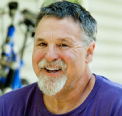
Joe Schipacci, Personal Health Assessment
Fifty-nine year old Joe Schipacci needed some help meeting his weight loss goals. With help from his health coach, he is staying on track with regular exercise and is achieving his goals.
Joe Schipacci decided to take the Sound Support Personal Health Assessment (PHA) in 2008 because he wanted to be diligent about his weight loss goals.
Joe has worked at Shoreline Central Market for nearly 10 years and has had to manage a condition that prevented him from exercising in the past. When he began to feel better, Joe started riding a stationary bike, and after completing his PHA, he was referred to a health coach. Joe says his coach has motivated and empowered him to stay on track.
“I know my coach will call me next Tuesday, so I get ready,” Joe says. “Knowing he’s going to call works somehow. It’s very encouraging and validates what I’m doing.”
In the summer, vacation travel can complicate the most deliberate exercise plans, but Joe thought ahead this summer and scheduled a call with his health coach for when he returned.
“I had him call me after my trip to make sure I didn’t slip,” Joe explains. “A lot of times it doesn’t take much to get off your routine.”
Joe got other tips from his coach for maintaining his workout goals during relaxing vacations. He walked with active relatives and continues to keep a calendar on the wall where he can check off the days he rides his bike.
After successfully achieving several short term goals, Joe is preparing for the next step in his wellness plan.
“A year from now I’ll be 60 and by then I hope to achieve my goal weight,” Joe states resolutely.
He knows there’s more to weight loss than exercise. In an effort to live a healthier life, he’s changing his diet as well. Health coaching has worked for Joe, and he encourages others to give it a try.
“This really works if you let these people help you,” Joe says.

Nancy Bronsteen, Quit For Life
*Forty-nine year old Nancy Bronsteen quit smoking for good with Sound Support Quit For Life®. She estimates that she has saved $1,000 in the past five months by not buying cigarettes, and she feels wonderful (and she didn’t even gain weight!).
*Please note that the $100 incentive check for Quit For Life® is no longer available for new enrollments as of January 1, 2012.
*For Nancy Bronsteen, by far the best part of quitting smoking is that she gets into bed at the end of every day feeling great about herself. Nancy says that “self loathing” was what finally got her to quit.
“I felt so stupid,” she says. “I’m educated, and I’m still smoking. It makes no sense.” Still, she had smoked off and on for 20 years, and it took the help of the Sound Support Quit For Life® Program to get 49-year old Nancy to change her habits.
“When I found out this program was going to start, I signed up immediately.” She can tell you the exact day she quit smoking: November 21, 2008. And she says, as soon as she started on the nicotine replacement therapy, there was no cheating and no turning back.
Looking back, Nancy now says the “dreaded anticipation” of quitting was the hardest part. “Your imagination makes it much worse than it actually is,” she says. But that doesn’t mean it was easy. In fact, it was depressing and upsetting to give up her constant companion and her routines. She says the Quit For Life® Program was extremely helpful. For Nancy, the nicotine gum was a great help, and the personalized counseling was essential.
“I liked talking to the Quit Coaches who had smoked before,” she says. “I could call and say, ‘I just picked a fight with my husband,’ and have someone to talk it over with. It was good to talk to people who understood what I was going through,” she says. “They made me feel like I wasn't doing this alone.”
Nancy says the first days of quitting were especially hard. “In the beginning, I was furious,” she admits. “I had my smoking routines, and without my buddy (my cigarettes), I didn’t want to do any of the things I used to do.” Even getting in the car and rolling down the window to let the smoke out was something she did automatically and was hard to stop.
How is Nancy doing now? “You know what? I am absolutely wonderful.” It’s great to feel proud of herself, and it’s nice not to have the window open in the car on cold rainy days. Nancy estimates she has saved $1,000 in the past five months by not buying cigarettes, and she is quick to point out that she quit smoking without gaining weight. She chews a lot of ice and sugarless gum, but she hasn’t replaced smoking with food.
“And then, to top it all off, when I'd quit for a couple of months, I received a check for $100 in the mail! This was like winning the jackpot,” Nancy says.
Nancy’s husband, Said Meskerkid works at the QFC on Broadway. She works in advertising for Pacific Publishing Company. “I quit smoking and the Trust sent me $100. I mean come on! I keep saying to my husband, ‘You’ve set us up with the best health coverage ever.’” Her next goal: To have Said quit. It’s worth another $100, and, she says, a lot more.
*Please note that the $100 incentive check for Quit For Life® is no longer available for new enrollments as of January 1, 2012.
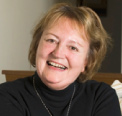
Fredda Lehan, Personal Health Assessment
Fredda, whose husband Robert has worked at the Red Apple in Kirkland for 8 years, had recently retired when she tripped and ruptured her Achilles tendon. She had three surgeries in three months, and a year later her foot was still so swollen that she couldn’t wear a regular shoe. Now, with help and encouragement from Kathy, her Sound Support health coach, Fredda Lehan is finally feeling like herself again.
“I just found out I’m going to be a grandma,” says Fredda Lehan, her face lighting up. “I’ve got to be healthy so I can help out.” With a part-time job at her daughter’s Montessori school, an 89-year-old mother to look after and a busy life with Robert, her husband of 42 years, 64-year-old Fredda was anxious to get healthy.
Fredda, whose husband Robert has worked at the Red Apple in Kirkland for 8 years, had recently retired when she tripped and ruptured her Achilles tendon. She had three surgeries in three months, and a year later her foot was still so swollen that she couldn’t wear a regular shoe.
Now, with help and encouragement from Kathy, her Sound Support health coach, Fredda Lehan is finally feeling like herself again.
“It was Kathy who made me aware that there was an infection in my foot and that I needed to go in to see the doctor again.” Another surgery later, she is walking—and wearing matching shoes!
Fredda’s road to recovery started with filling out the Sound Support personal health assessment. The assessment prompted a call from a Sound Support health coach, but for Fredda, who had worked for most of her career in physicians’ offices, the idea of talking to a health coach was a big adjustment.
“I had always thought that all that was done at the doctor’s office. I’d never even heard of a health coach before,” she said. “But once we got in a routine, I realized I had a lot of questions.” In their telephone calls, they touch on all of Fredda’s health concerns, from her ankle problems to managing her breathing problems, to weight control, to dealing with a bad cold.
Fredda can’t say enough nice things about Kathy, “I feel completely comfortable talking to her about anything. She’s easy to talk to and doesn’t ever make me feel like I’m repeating myself.”
Today, Fredda is 18 pounds lighter and regaining her active lifestyle. She’s “hopeful and happy” and looking forward to being a hands-on grandmother.






















